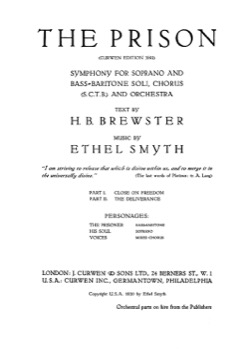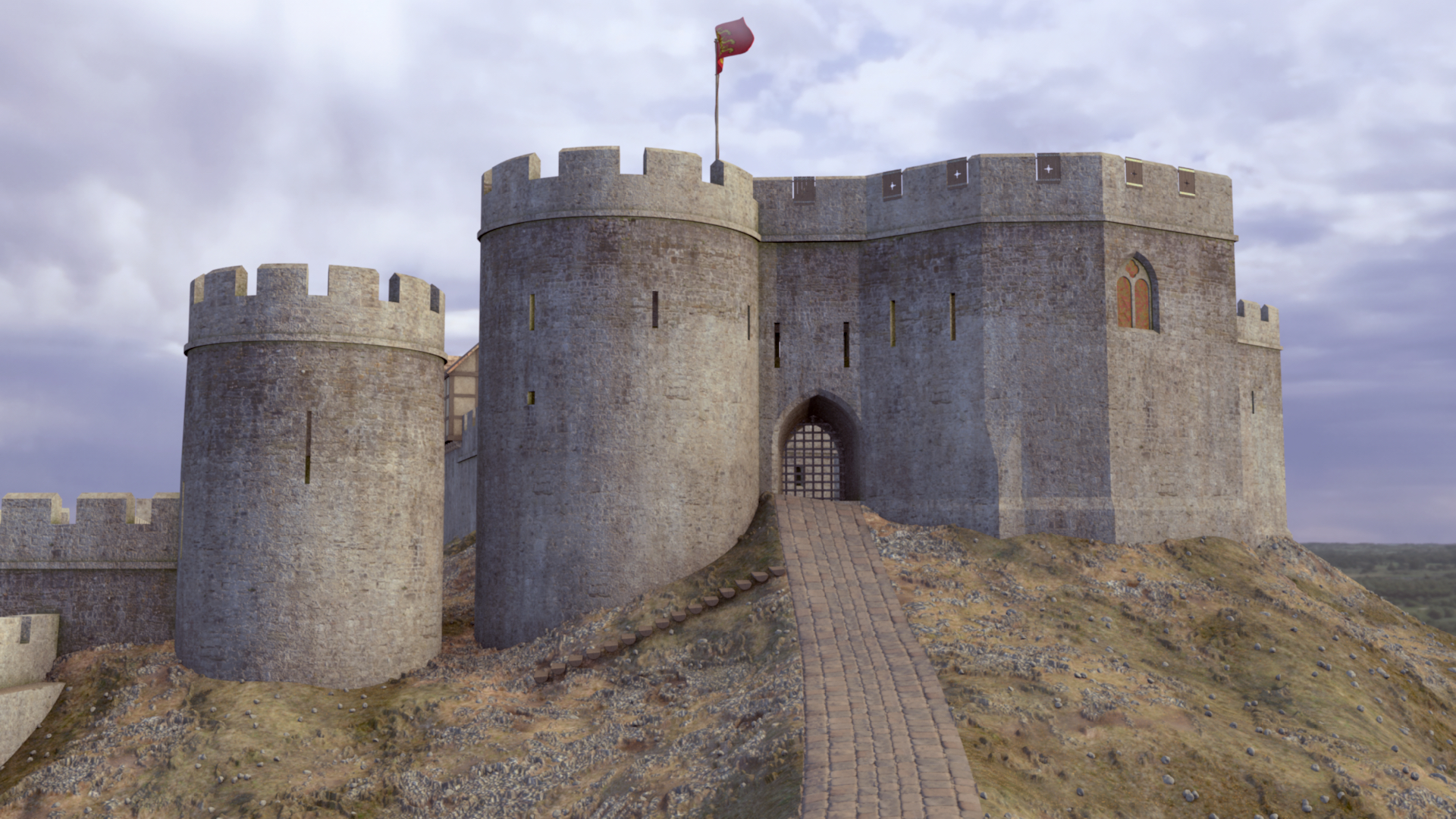The first promotional video for the new audio release from B7 Media: Eleanor of Aquitaine.
Original Music for the videos and the audio.
An occasional blog by a jobbing composer, reflecting on both completed and ongoing projects.
The first promotional video for the new audio release from B7 Media: Eleanor of Aquitaine.
Original Music for the videos and the audio.
Some seasons I have written words in between compositions. More recently it has been the other way round with my work-in-progress standing at 65,000 words and not yet half way. However, it looks like this winter will include some large scale compositions. I have been engaged to provide the music for a classic dramatisation for Audible, period music for a filmed show with an esteemed theatre actress in her 90s, and soundtrack for a documentary on the original Chester cathedral of St. John’s.

New from Lost in Castles:
This is my fourth Lost in Castles score. We started with Middleham Castle in Wensleydale, when I was a new music graduate. Next came Sandal Castle & the Battle of Wakefield, which featured the popular song Edward's Lament. Some years later, work completed on the mammoth documentary "Conwy Castle: Medieval Masterpiece", requiring a 90 minute score. Rhuddlan Castle: Gateway to Wales is the follow-up to Conwy, the second in the series Castles of the Conquest.
These scores are always very special to me. The films require more music than a drama, because the combination of real on-site footage and animated reconstructions requires "bedding in". Also, the historical aspect is always present but often has to be subordinated to focus on the castle, so the music serves to invigorate the pleasure that can be found in touring a castle site, even remotely. All the Lost in Castles scores are available to hear and buy online.
Find out more about the DVD here: http://www.lostincastles.com/rhuddlan-castle/
The special feature from Rhuddlan Castle: Gateway to Wales. Music by Abigail J. Fox.
In the last few weeks I have had a series of commissions to fulfil, most of which cannot be shared here as musical examples due to permission and rights:
Scoring is always a challenge because you have to subordinate the musical idea to the needs of the images, without it appearing to be compromise. You can learn how to do it better, but you still have to face unique corners in every film. In some ways, dramatic scoring is much easier than corporate because in drama the composer has licence to impose and make grand gestures. The best corporate scoring is only felt and never heard. It has to be very tight and to the point, without any scope for so-called "artistic" temperament.
The song has been an enjoyable counterpoint to these scores and a great opportunity to spend an hour or two recording again. It's 15 years since I was handing in my A Level composition coursework, including a multi-tracked musical number I had written for The Little Princess.
I have been working on my monodic skills for several years now, trying to identify how to write a single line of melody which suggests the right sense of harmony and maintains rhythmic power.
So far in the instrumental part of my monody project, I have composed ten monodic works around the fiddler. (I chose the fiddle because, although it can be placed with other instruments, it is not unusual for it to carry a tune alone. However, I have restrained myself from the more interesting chord effects of the instrument to keep the idea of monody in view.) The Dandee Shanty was the first such piece.
One of the attractions of monody is the clarity and force of statement possible in a single line of tune. If you have an ensemble or an orchestra, you can be vague and ambiguous in your harmony and clutter up the theme with counter-melodies. That may be required in a composition. But it can also be accidental and come about through not really having a strong idea of what the piece of supposed to say and how.
Monody is not so forgiving. It requires precise ideas, executed directly and efficiently.
This has had an effect on my non-monodic compositions because it encourages economy of ideas. I consider the source material (logo sting, branding, video edit, animation, script) and talk to the director. I usually have an immediate musical idea, which I develop vocally. Singing an idea is an excellent way of finding the natural curve of the tune, balancing the flow and keeping harmonic changes marked in the composition of the melody. By singing the idea until it runs smoothly and has grown memorable enough for me not to forget, I approach a compositional commission with the main idea fixed. Then, even if the texture of the piece is layered and polyphonic, built up with synthesisers and a drum track, or washed over with luscious string harmonies, I have a central idea, which I can weave in and out.
Orchestration and arrangement should both be taught, but it is a shame that monody is not, because monody shows that a strong idea can be orchestrated, whereas orchestration teaches us to make a sound, even if we have nothing worthwhile to say.
With the benefit of hindsight, some of my pre-university compositions were often written in this way. I can clearly recall spending a morning in front of a computer, trying to compose dynamic title music depicting a desperate horse ride over wild country in the north of England. I had wasted hours tootling on the keyboard, trying to orchestrate without a theme, and I had produced nothing. But when I was washing up lunch pots and not thinking about music:
Du-du-du.
de-de- Du-du-du.
I had a rhythm. I whistled it through my teeth, for it had no tones. I kept whistling.
Du-du-du.
de-de- Du-du-du.
de-de-Du-du-du-Du-du-du-Du-du-du-Du-du-du ...
So it went on. And as I whistled the rhythm, the appropriate tones fell onto the notes, as a cascading melody, struggling up hill, across rivers, rushing into valleys, darting in and out of trees. I went upstairs with an entire idea. Over the next 2 hours I composed the work with full orchestration and this was the composition:
It was a beautiful experience to be able to compose so efficiently and entirely in one go (I was 18 and happily untaught). It is rarely possible. Feature-scores have to be composed over a month or more and it is a different skill to keep going on a piece over such a time period. But I am more convinced than ever that if we want to write melodies, we must write monodic tunes with the voice. They are unapologetic, focused, dynamic and deliberate. And then - once we have a clear idea - if we want to make it hidden, watery and vague, we can do so because we have an idea to dilute, not because we do not have a clue what to say.
In preparation for the Cecilia Chorus of New York's premiere in the USA of The Prison by Ethel Smyth, I have produced full audio-realisation, with individual rehearsal lines for double Soprano, Contralto, Tenor and Bass. It is a task that requires great care for more than 1000 bars of music and a running time of about 50 minutes. But the end result is that a work that has been very seldom heard can become familiar to choir members and their own practice can be done in the context of the work at large.

Chat Noir Productions Ltd are producing a new series of films with acclaimed financier Dan Solin and I've been brought in once again as the composer for the project. Film 1 now complete! Here's a sample of what we did on the last series:
I'm very pleased to have finished scoring the Lost in Castles mini-documentary on Dyserth Castle.

It will be released ahead of the feature-length documentary on Rhuddlan Castle and will be available online.

In preparation for the Cecilia Chorus of New York performance of Messe Romane by Thierry Escaich, I have been commissioned to produce rehearsal tracks for some of the choir parts. This involves producing a near-complete audio realisation of the score and then highlighting a particular vocal line to aid learning.
One of the joys of collaboration is being able to return favours. In this case, my wonderful sound engineer and maestro for mixing and mastering, has been producing the sound for Spiteful Puppet's "The Importance of Being Earnest". The story required a few very specific excerpts of music, as well as title music for the start and end.
I have tried my hand at writing library music tracks and was, for about 3 years, signed to produce them on a regular basis. I know that the best you can produce is something so generic that it could fit as many purposes as possible because the more uses equals the greater profit. But it does not - in my opinion - serve well the film-maker or sound engineer who needs just the right bit of music to finish a great production. Hence "the favour". This was a voluntary job, arranging the wedding march as if being played by a ham on the piano or - as in the track below - a man tootling on the keys of the piano, with the slowness you experience trying to find the right notes and the burst of speed when you know. Totally "unmusical" but very human!
It goes to show that when you know what you want to write, it's ten times easier than trying to saying something that could produce a mood.